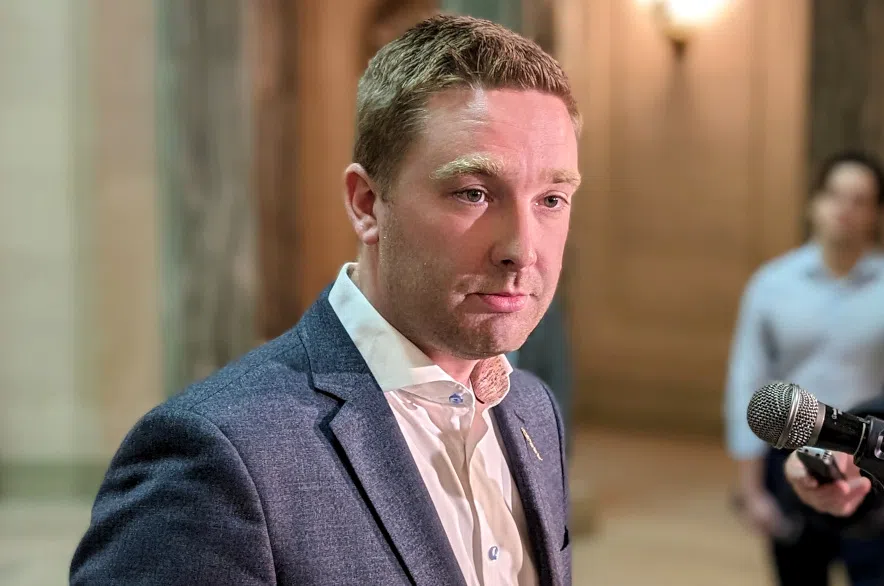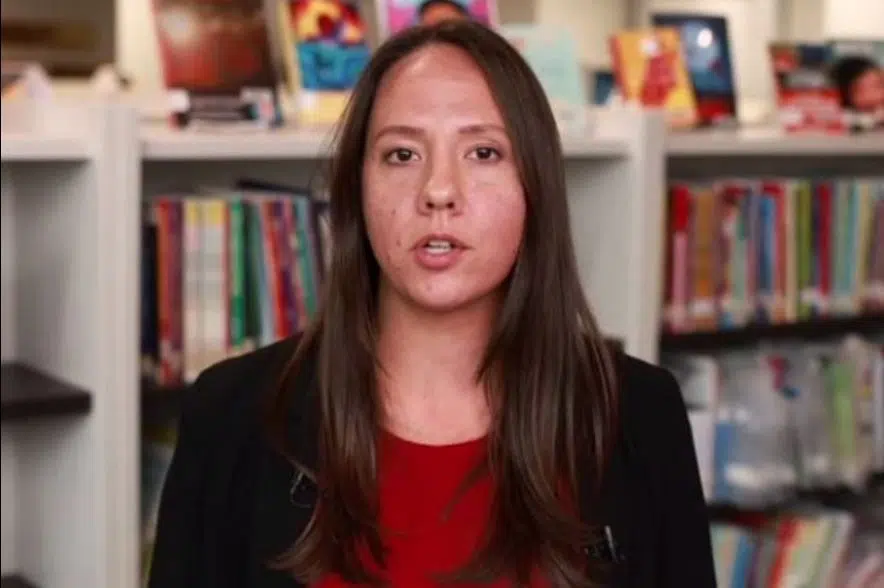The two days set aside for talks this week ended with no deal between the Saskatchewan government and the bargaining committee for the province’s teachers, and now both sides are blaming the other for the lack of a deal.
Education Minister Jeremy Cockrill said the government’s bargaining committee arrived at the Saskatchewan Teachers’ Federation (STF) headquarters at 1 p.m. on Monday for talks, but claimed the union left the table after half an hour.
“If you don’t have another party ready to bargain, it’s sure hard to have a discussion and get to a fair deal,” Cockrill said Wednesday at the Legislative Building.
On Tuesday, there weren’t any talks. Cockrill said the teachers’ representatives said they’d be available at 5:30 p.m., but they had made clear they weren’t interested in discussing the new offers the government side had brought.
“It was mutually decided it wasn’t worth meeting,” said Cockrill. “We were ready to bargain but if the union leadership isn’t ready to talk about the issues on the table, then what’s the point in meeting?”
However, the STF tells a different story. It said talks resumed because the government bargaining committee had said it had a renewed mandate, but once things started, it was apparent the new mandate was “extremely limited.”
STF president Samantha Becotte said the union asked the government committee on Monday to call Cockrill for further direction on the union’s proposals.
“It was clear (the government committee) had not been provided with the authority to actually engage in negotiations at that time,” Becotte said during a conference call Wednesday.
When the talks broke down Tuesday, the STF reinstated sanctions for Friday, withdrawing lunchtime supervision across the province and launching one-day strikes in several school divisions.
The STF continues to push for classroom size and complexity to be negotiated as part of the contract, saying it speaks to teachers’ working conditions. While the government’s committee can negotiate, it can’t around classroom size and complexity as Cockrill continues to say, point blank, the government won’t include that in the contract.
The government has offered an agreement to annualize the funding already announced to deal with classroom size and complexity — $40 million to school divisions to deal with operating pressures, $6.1 million for the Teacher Innovation and Support Program pilot and the Specialized Support Classroom pilot, and $7 million to hire more educational assistants.
However, that deal would be outside the teachers’ collective bargaining agreement, and Becotte said that means there wouldn’t be any dispute resolution if the province didn’t hold up its end of the agreement and it could be cancelled by the government at any time.
“The minister, the Ministry of Education and the Saskatchewan Party government are trying to make a pinky promise with teachers while they cross their fingers behind their back,” Becotte said.
“I’m really not sure how they think teachers would accept anything outside of the collective agreement where they can be held accountable to any commitments that they’re making.”
Cockrill maintains that size and complexity don’t belong in collective bargaining and should be dealt with at the school division level. When asked what assurances there would be that the government would abide by that agreement, Cockrill said his signature would be on it.
“We’re putting forward our promise and our word and we’re committed to that,” he said.
The teachers’ federation also says the government bargaining committee used stalling tactics right away.
Instead of talks starting Monday morning, the government delayed until the afternoon. After discussing the proposals separately Monday afternoon, Becotte said the government committee said it needed more time to go over them.
While initially pushing talks resuming until 5:30 p.m. Tuesday, the STF said the government committee called and cancelled it altogether just a couple hours before.
Now, Cockrill said he’s directed the government bargaining committee to be ready to go and at the table, all day every day to try to get figure out a deal.
Cockrill argues his government has moved on its initial offer, showing that it wants to get a deal done.
On salary, it was offering a seven per cent increase over three years, while the new offers are either an extension of that initial offer or teachers getting the same deal that MLAs get for their salary – tied to the Consumer Price Index for the previous year with a ceiling of three per cent.
When asked about the teachers’ proposal on salary, Becotte said the union has always been willing to negotiate and the bargaining committee has always had the authority to, but argues the government’s side hasn’t.
“They have brought one-time take-it-or-leave-it offers to the negotiations table,” she said.
Cockrill argues the teachers haven’t moved on any of their 10 asks in the bargaining process, but he hopes the teachers’ side will “change their tune.”
Becotte said she was hopeful that an agreement that works for both sides would’ve been made earlier this week.
“I was willing to stay through the night. I would’ve stayed until midnight or 2 a.m. and worked it out if we could’ve come to an agreement,” she said.
The STF president said the minister has been misleading the public and sharing misinformation about the realities of the process and the STF.
“They see this as a cost item only, and to me and to parents across the province, education is the best investment that we can make,” she said.
“We have seen this playbook before. It is in this government’s history where they paint teachers as greedy teachers or they paint the federation, specifically myself, as unreasonable,” she said.
Still, Becotte said the union is ready to come to the table to make a deal.
“We understand what we have put forward is likely not going to be where we end up, but we need to have that back-and-forth conversation (and) we need the government willing to engage with us in a back-and-forth conversation,” Becotte said.
— With files from 650 CKOM’s Mia Holowaychuk












